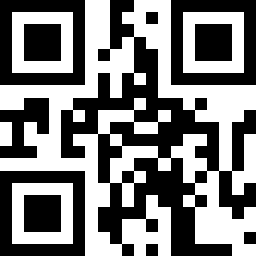CSL4040: Social Networks
If you register for CSL7390: Social Network Analysis, please visit the specific course page.
Table of Contents

Logistics
- Credits L-T-P [C]: 3-0-0 [3]
- Expectation from 4000 level course:
- 1 Contact Hr + 2 Non-Contact Hr
- Learn by Assignments/Experiments
- Where: Room 104 CSE
- Slot: R (Thursday 6:00PM - 7:30PM, Saturday 4:00PM - 5:00PM)
- LMS: Moodle
- Credential: Internet ID/Password
- Easy Enrollment Code: thr2u8
- Easy Enrollment QR

Syllabus
- Introduction: Graphs, Social Networks, Network Types, Network Data Sets, Gephi for Network Analysis
- Network Properties: Network Measures, Strong and Weak Ties, Homophily, Structural Balance, Components
- Network Models: Random Networks, Scale Free Networks, The Barabási-Albert Model, Erdos-Renyi Model
- Structural Analysis of Networks using Python: Python for Network Analysis, Empirical Studies, Structural Properties, Generate Synthetic Networks, Working with signed networks
- Social Network Applications: Information Cascades, Small-World Phenomenon, Epidemics, Community Detection, Link Prediction, Page Rank
- Evolving Network and Temporal Networks: Network evolution, working with Temporal Network Data
- Multiplex and Multi-layer network, Network Analysis in Biology, Sports, Transports
Learning Materials
Textbook
- Networks, Crowds, and Markets: Reasoning About a Highly Connected World, by David Easley and Jon Kleinberg, (Cambridge University Press - Sep 2010) - Prepublication draft available online. http://www.cs.cornell.edu/home/kleinber/networks-book/
- Network Science, by Albert-Laszlo Barabasi, (Cambridge University Press - August 2016) freely available under the Creative Commons licence. http://www.networksciencebook.com/
- Networks, by Mark Newman, (Oxford University Press, 2nd-edition - Sep 2018)
Reference Books
- Complex and Adaptive Dynamical Systems, by Claudius Gros, (Springer, 4th Edition - 2015).
- The Structure of Complex Networks Theory and Applications, by Ernesto Estrada, (Oxford University Press - Dec 2011).
- Exploratory Social Network Analysis with Pajek, by Wouter de Nooy, Andrej Mrvar, and Vladimir Batagelj, (Cambridge University Press, 3rd Edition - July 2018)
Self Learning Material
Attendance Requirement
As per the notification from academics 100% attendance is mandatory. If you have genuine reason please take leave approval as per academics rule.
If attendance falls below 75%, one should get at least C grade to pass the course. Otherwise F grade will be assigned.
Grading Policy
| Interactive Videos | Quizzes (Moodle) | Special Assignment |
| 10% | 15% | 15% |
| Coding Assignment | Minors | Major |
| 15% | 10% + 10% | 25% |
Interactive Video (Moodle)
All the topics in the syllabus is covered in interactive videos where all the videos are embedded with questions. Answer the questions and get the grades. You can try as many times as you wish and improve your scores.
Quizzes (Moodle)
- There will be about 4-6 quizzes; best 3/4 will be considered for grading.
- All the quizzes will be in Moodle Platform.
- No makeup quiz will be taken considering there will be more than required no of quizzes.
Coding Assignments
- There will be many coding assignments, about 8-10.
- Least 2 scores will not be consider for grading.
- Preferably with NetworkX in Python
Special Assignment
- There will be one special assignment for which one may need to read papers and implement the code.
Quiz dates will be announced during class
Plagiarism tolerance is 7% from single source and 15% cumulative, anything more will reduce your marks as follows:
- Any logical/conceptual/formulation plagiarism: zero marks
- Other form of plagiarism (above 50%): zero marks
- Otherwise: Percentage of plagiarism will be deducted from the obtained mark